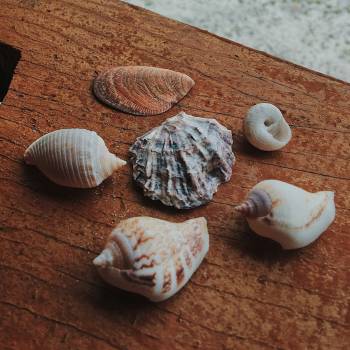Our thoughts do not define us.
However, what we allow to have power over our emotions and actions does.
What’s ironic is, we often have a filter on our thoughts, but not the one we are supposed to use, which is the guidance given to us by our Creator.
Instead, we allow our negative, and sometimes biased assumptions, to act as a sieve which only allows our pre-conceived notions to come through.
Let’s look at a quick example.
Imagine there’s someone in your life you don’t quite get along with. It could be a classmate, co-worker, or relative.
One day, that person does something really nice for you. If it had been anyone else, your heart would have been so touched at this gesture.
However, because it’s them, you instantly assume that they have some ulterior motive and are secretly laughing at you behind their sleeve.
Now, this isn’t the way Allah wants us to approach life. We are not supposed to view reality through a subjective and negative lens, which harms our view of ourselves (this person is never going to like me), others (he/she is secretly plotting against me), and Allah (Why has Allah placed this person in my life?).
In regards to this scenario, Allah tells us,
“O you who have believed, avoid much [negative] assumption. Indeed, some assumption is sin. And do not spy or backbite each other…”
[Al Hujurat: 12]
SubhanAllah, it’s amazing how well Allah knows His Creation! Because what happens when we think someone is “out to get us”? We keep tabs on them to see whether they’re carrying out their ‘evil intentions'.
And it’s easy to fall into complaining about them to others, perhaps unjustly adding embellishments to the story based on what you think is true. Because we only focus on the things that confirm what we believe is reality.
This is sinful and so not worth displeasing Allah for (nothing is).
Therefore, we need to change the “spectacles” with which we view the world and learn to navigate the beautiful map to a healthy, wholesome, content life that Allah has given us through His Book and Messenger.
Here, In Shaa Allah, we shall explore and debunk some common misconceptions and cognitive distortions which directly affect our relationship with ourselves, other people, and most importantly, our connection to Allah.
Set aside your burdens
We often beat ourselves up with “should” and “could “statements.
“I should have laid out a nicer spread for my guests.”
“I should have gotten better at this skill by now.”
“I should have been able to stop that argument from happening. Now everyone is mad.”
This often happens when we set unrealistic expectations for ourselves. And worse is when we strictly impose such expectations as if they are from Allah.
We try to make everyone happy with us, and when we fail (because it’s impossible), then we believe that Allah is angry with us.
We forget to do something important, like packing our kids’ afterschool snacks or helping our siblings revise before an exam, and then are so eaten up with guilt that we brand ourselves as terrible parents/people.
We promise to leave a habitual sin, and the first time we slip into it, we give up because “there’s no point, I’ll keep doing it anyway.”
This is not healthy and not Islamic.
Allah expects us to do our best with what we have, but He does not expect us to be anything more than human.
Here is a beautiful saying by Ibn Al Qayyim that places things in perspective:
“Do not carry the worries of this life because this is for Allah and do not carry the worries of sustenance because it is from Allah and do not carry anxiety for the future because it is in the Hand. Carry one thing, how to please Allah. Because if you please Him, He pleases you, fulfills you, and enriches you.”
Who are we to say whether or not we will keep sinning? We don’t know the Unseen!
Who are we to label ourselves as “bad” or “unworthy”? Allah is the Most Merciful, yet how harsh we are with ourselves!
Who are we to believe that we can control the hearts of others? Allah is the sole Turner of Hearts; Al Muqqalibal Quloob.
The mentality of “La Hawla Wa La Quwwata Illa Billah”, that there’s no power of strength except what is with Allah, should make you feel immensely relieved of all burdens, which we were never meant to carry.
This doesn’t mean that we don’t exert the effort, it means that we work towards the best version of ourselves in our different roles, but we know that the results are from Allah alone.
The outcome is not in our Hands but in the Hands of One Who wants better for us than we could imagine for ourselves.
And if that’s not empowering, I don’t know what is.
Give to what is Greater
There’s a beautiful quote by author David Rakoff, which says, “There is nothing so cleansing or reassuring as vicarious sadness.”
When we open our eyes to the stories of other people, those who have been through worse things than you can imagine but come out so strong, as if tempered by steel, you cannot fail to feel serenity in your heart. You feel contentment with all you have and all you were spared from.
Our Prophet ﷺ left us with this timeless advice:
“Look at those below you and do not look at those above you, for it is the best way not to belittle the favors of Allah.”
[Al Bukhari 6490]
When we see people who are tested more than us, we should feel empathy, placing ourselves in their shoes and making heartfelt du’a for them by name. This is not to make us feel superior to them, rather it should help us place things in perspective and be thankful to Allah.
A part of showing our gratitude to Allah is to give in His way, to be of service to something bigger than ourselves.
Who was the slave whom Allah سُبْحَانَهُ وَتَعَالَى showed gratitude towards?
We learn in an unforgettable hadith the incident of a sinful man who, after drawing water for himself on a scorching desert day, did the same for a thirstily panting dog. He was grateful to Allah for his access to the life-saving resource, water, and shared this blessing with another creation of Allah.
“Therefore, Allah thanked him and forgave him.” [ Al-Adab Al-Mufrad 378 ]
His sins were forgiven after one simple act of selflessness, SubhanAllah.
This is a reminder for us never to belittle any of our good deeds and to connect all our blessings to Allah, their Source.
When we know Allah in times of ease and prosperity, He will know us in times of grief and hardship.
Du’a is a journey
You may feel like everyone is moving forward, but you’re stuck in the same unsatisfactory place. You keep making du’a but nothing happens, and even if something changes, it seems to be a detour that takes you even further away from what you wanted.
How many times do we think to ourselves with a sinking heart, “Am I ever going to get what I want? Maybe Allah doesn’t want this for me, maybe He is rejecting my du’a.”
But have we ever stopped to think, Who is inspiring us to make this du’a in the first place?
For instance, look at Ibn Al Qayyim’s beautiful statement on du’a:
“If Allah did not want to accept your du’a, He would not have guided you to make it in the first place.”
The esteemed scholar further assures us,
“When you make du’a, it is a sign that Allah loves you has intended good for you.”
Let’s reflect on a beautiful story that we know from the Quran. The touching tale of Hana عليه السلام, the mother of Maryam عليه السلام and grandmother of Isa عليه السلام.
She had made deep, raw du’a for a child for years and years before finally conceiving. Despite being infertile for so long, she didn’t give up on her and her husband’s dream of a righteous child in the service of Allah, and it came true…only, not exactly how she had envisioned it.
Her husband never got to experience their beautiful baby. And the son she had been so certain of turned out to be a baby girl.
Now, despite her initial shock, she didn’t complain to Allah. She didn’t question the nature of her miracle, why it didn’t tick all her boxes, why it didn’t play out exactly as she had imagined. Instead, she supplicated for her little daughter, and amazingly, her child’s progeny.
The ‘detours’ that seemed to take her away from her beloved dreams did not discourage her.
Why? Because she had good expectations of Allah. She knew that Al-Mujeeb always responds and that Allah in His infinite Knowledge, Wisdom, and Mercy always answers with what is better.
Maryam عليه السلام had a unique purpose to fulfill that a son could not.
She grew up to be an inspiration to all of humanity and a standard of taqwa (God-consciousness) for all believers.
And her son عليه السلام, who Hana had supplicated for in her moment of disillusionment, grew up to be a worker of Allah’s miracles, and the Word of God.
Allah is too shy to leave our hands, raised to Him Alone, empty.
Our answer may hit us at an ‘ah-ha’ moment, like: “SubhanAllah, this is exactly what I prayed for!”
Sometimes it may take us time to recognize that Allah has answered us, but in a better way than we could have asked for ourselves.
It could be that time passes, and you forget you even cried out to Allah for this specific thing, you move on with life, and-Bam! You bump into the manifestation of your old dreams just when you need it the most.
And the final type of answer may be slightly harder to swallow, but it’s infinitely better.
We may not receive what we ask for in this life. But it will await us in the Hereafter, where it can be enjoyed for eternity without diminishing or fading away, without losing its enchantment. SubhanAllah.
When you call upon Allah, you are always, always winning.
So, enjoy the journey while you’re at it! You’re conversing with the Lord of the Worlds, Who simply says ‘Be’ and it is.
Keep yourself in a state of anticipation, look forward to the answer, and even during those ‘detours’, watch and see how Allah’s Perfect Plan unfolds!
And while we wait expectantly and hopefully, we shouldn’t forget one important thing- Allah promises to respond, but we should also respond to Him.
Do we propel our du’as with good deeds?
Do we connect with and act upon the Quran and Sunnah?
Do we strive to purify ourselves, our earnings, and our relationships?
Or do we fill our hearts with pointless distractions that sabotage our success in this world and the next?
Keep making du’a, but don’t be passive, be a do-er.
And, finally, remember:
It’s not His rejection; it’s His redirection.
You can find my previous article on Islam and mental health remedies right here - https://community.qalby.io/ilm-feed/44/spiritualbalmsfortherestlessheart
Referential Material:
“Inside out, Outside In”, Mental Health Course conducted by Al Maghrib Institute, Lecturers: Sr. Sarah Sultan, Sheikh Omar Hussein, Imam Omar Suleiman.
Mindful Muslimah Podcast, titled: “How to stop overthinking and negative thoughts.” [Episode 276]
“I Am Her”, Course on women mentioned in the Quran, conducted by Al Maghrib Institute, Lecturer: Ustadah Taimiyyah Zubair.
 Maryam Hamza
Maryam Hamza 





Fatima Altalib
Maryam Hamza